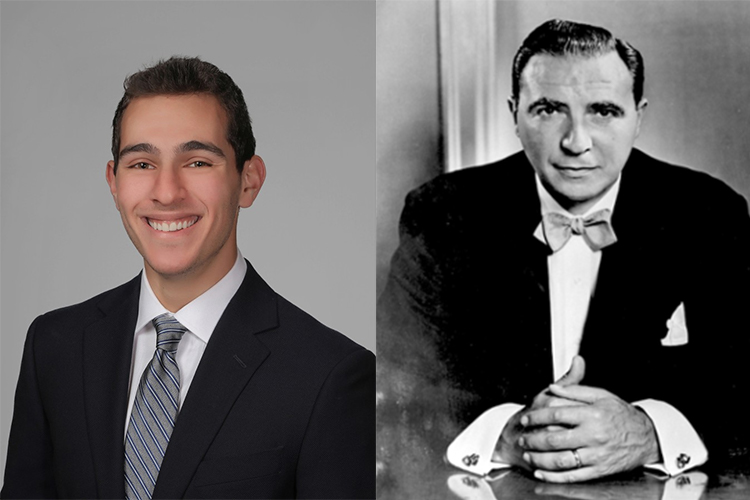Student grant winner shows research resilience

Museums: closed. Archives: closed. Libraries: closed. How does a student of history conduct research during a pandemic? Rising senior Max Rotenberg, a history major and economics minor, planned to visit presidential libraries and archives in cities like New York, Boston, and Austin, Texas prior to the pandemic. With university-sponsored travel suspended for the summer, Rotenberg finds himself in a difficult position.
But instead of travelling to archives and libraries to locate primary sources this summer, he is in the novel but not unique position of working and studying from home. While he may be stationary, his schedule is still full—Rotenberg is completing a 9:00 a.m.-5:00 p.m. remote internship with the Department of Homeland Security while squeezing in work on his thesis on evening and weekends.This spring Rotenberg received a grant from the Tam Institute for Jewish Studies (TIJS) at Emory to conduct research for his honors thesis project. TIJS provides funds to students working on topics related to Jewish studies to use for off-campus opportunities such as study abroad, research, and language study. The History Department requires its students to begin thinking about their thesis topics in the fall of junior year, during which time they apply for the program and submit a rough proposal. This spring Rotenberg began the second phase: honing his topic and gathering a base of secondary sources.
“Broadly speaking it’s about American foreign policy towards Israel’s nuclear program in the 1950s and 60s. A lot has been written about Israel’s nuclear program and a little bit less but still not an insignificant amount about American policy towards it. What has only been touched on a little bit is the role that one man named Abe Feinberg played. My thesis is trying to trace who this man was. Who was Abe Feinberg? How was it that he was able to have the ear of three American presidents?” says Rotenberg of his thesis topic. “That’s part of a broader question, which is how this developing country, Israel, that has a tiny budget and very few people by 1967/1978 have a fully operational nuclear weapons program, when during the 1960s it was at least the stated policy of the United States to be against nuclear proliferation?”
To pursue the role Feinberg played in American foreign policy and the development of Israel’s nuclear program, Rotenberg planned to visit the John F. Kennedy Presidential Library in Boston and the Lyndon B. Johnson Library in Austin. Brandeis University was also on the agenda for the potential of finding archives relating to Feinberg because he served on the university’s Board of Trustees. “Unfortunately because the libraries are closed I haven’t been able to get up to those. I’m hoping that they may open in the fall and I may be able to get in before I graduate,” says Rotenberg.
Rotenberg is rising to the occasion, however, starting by taking advantage of what is already available. “So far they’ve digitized at least a little bit. From the Johnson Library I was able to listen to some conversations between Johnson and Abe Feinberg, which was a really cool experience to be able to listen in to the private conversations of the president of the United States.” However, there are still a couple relevant boxes in the Johnson Library that have not yet been digitized, and he is currently reaching out to see if he can access the material remotely—even if it’s just a staff member snapping pictures.
Rotenberg says, “These are obviously unprecedented times, so my ideal way that I’d be researching if there wasn’t a lockdown has been complicated,” but even without full access to sources he hopes he’ll “still be able to write an interesting paper about a person and a story that not a lot of people know about.”
While some faculty may be able to delay research trips until the following summer, Rotenberg and other rising seniors are working on a stricter timeline. Rotenberg has a rough draft of his thesis due mid-March, a defense in mid-April, and a final draft due by May 1, 2021. He would have also liked to travel to Israel for research, but he says, “It’s a little more complicated because they don’t like talking about their nuclear program—it’s part of their strategy. They still have a state censor, and really it’s only for this purpose. It would have been hard anyway, but now with coronavirus there’s just no chance.”
Still, says Rotenberg, “I’m really proud that I get to go to a university that stands by this type of research even in these weird circumstances.”